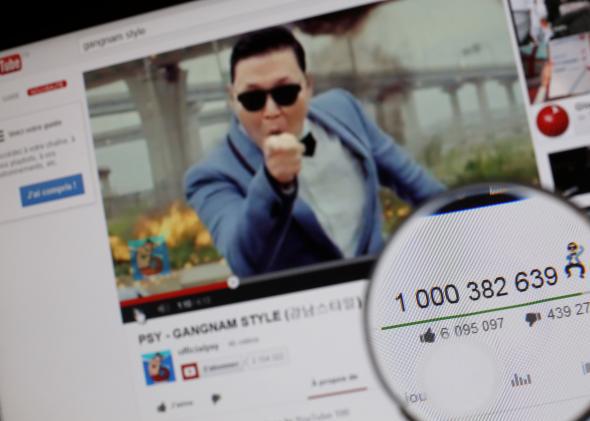After months of leadup (and some nasty tussling with artists), Google-owned YouTube announced today that it will offer a paid music subscription service. The name: Youtube Music Key. The promotional price: $7.99 a month, marked down from $9.99. Right now, the service is in invite-only beta mode. But this marks the start of what seems like Google’s first serious bid to plant itself firmly in the center of the music industry.
Two points to make here, one narrow, one broad:
The narrow point: This sounds like a good deal, and Spotify should be worried
YouTube is already the world’s largest streaming site. But it’s never been particularly useful for searching for whole albums or listening on the go. The company wants to change that. Starting soon, visitors will be able to easily pull up artists’ whole discographies and browse curated playlists. Those who sign up for the paid version of the app will get their music ad-free, be able to play it in the background while using other apps on their phone (which YouTube currently doesn’t allow), and watch videos offline.
All of that is nice enough, though perhaps not enough to convince most music fans to shell out a monthly subscription fee. But here’s the part that should scare established streaming services: Those who subscribe to YouTube’s new service will also get a complimentary subscription to Google Play Music, the company’s Spotify analogue, which up until now has gone by the ungainly name “Google Music Play All Access.” (YouTube Music Key isn’t exactly a masterstroke either, but at least it’s succinct). So far, Google’s streaming service has failed to get much traction, just like its iTunes Store equivalent, Google Play. But with YouTube offering a service that basically amounts to “Spotify-plus” for $2 less per month, at least initially, it’s possible to imagine the company finally siphoning off music fans into its network of services.
The broad point: Whether or not Taylor Swift likes it, streaming is the future
It’s a nice coincidence that this news comes so soon after Taylor Swift pulled her catalog from Spotify (though, notably, not YouTube) and derided streaming as a “grand experiment” that doesn’t pay artists fairly.* She might even be right. But it’s very clear that the most important players in the industry right now—the big record companies—don’t care.
The first thing to realize about streaming services like Spotify, or Youtube Music Key, or the soon-to-be-renamed Beats Music (owned by Apple), is that they live and die according to the mercy of the three major music labels—Sony, Warner, and Universal—that control about 90 percent of the industry’s sales. If any one of those companies decided not to sign over the rights to its catalog, no service could realistically expect to survive. But the big three have clearly made the calculation that they are best off with a thriving streaming market to combat piracy, which for a long while seemed like an existential threat to their businesses. The biggest testament to their love of streaming may be the fact that they’ve signed deals with services like Beats and YouTube, even though they own a large chunk of the equity in Spotify (which they received early on in return for writing off royalties the service would have owed). They don’t just want their own service to grow. They want a whole network of sites competing to win over fans.
*Correction, Nov. 12, 2014: This post originally misstated when Taylor Swift pulled her catalog from Spotify. It was last week, not this week.
